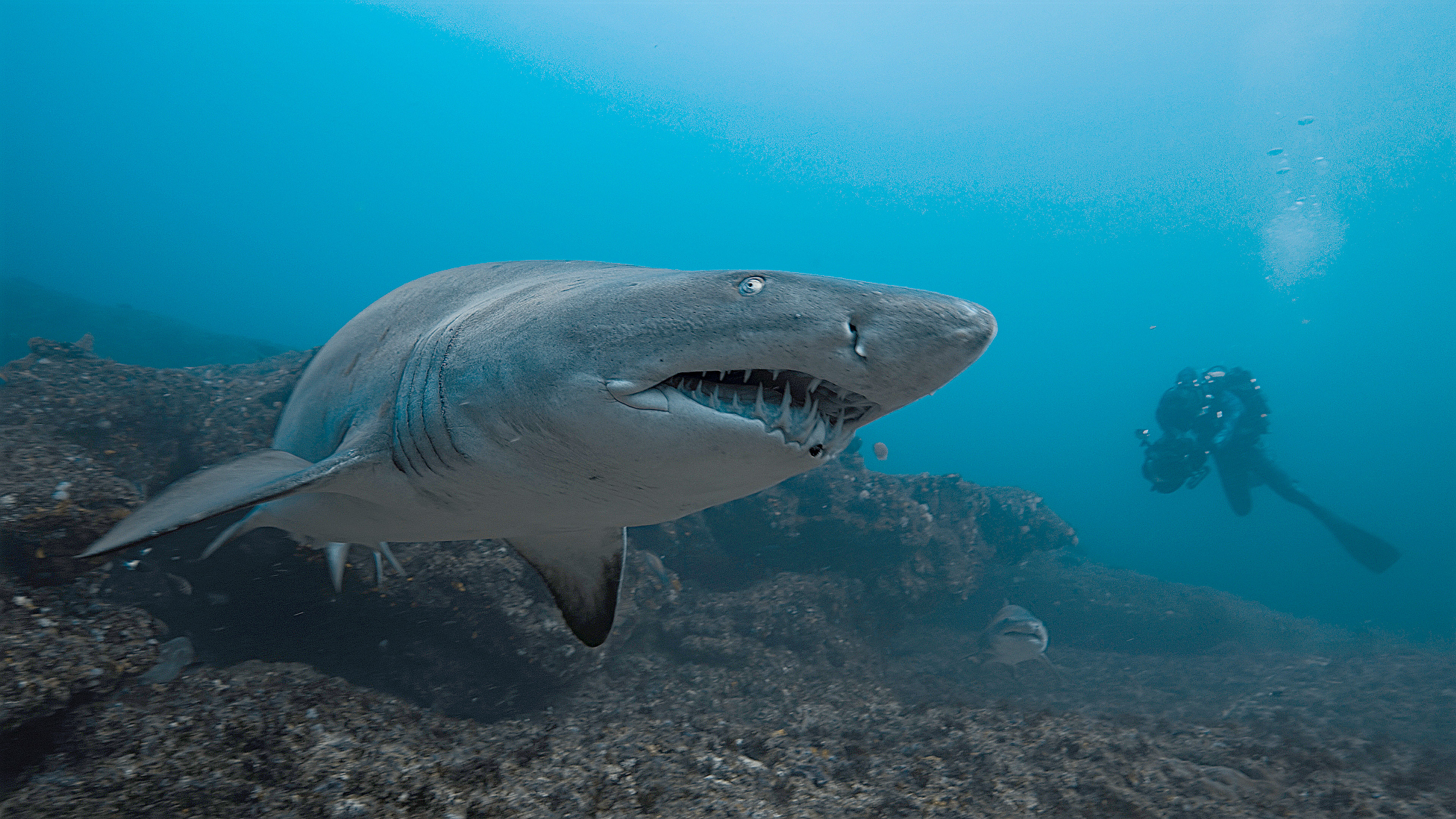Swimming with Sharks: Behind the (underwater) lens
Published 4:27 am Saturday, July 5, 2025

- Dan Beecham is a British underwater cinematographer who specializes in shooting wildlife sequences for documentaries. In this photo Beecham took, he films Bertie Gregory for his latest show, “Sharks Up Close With Bertie Gregory.” (Dan Beecham / National Geographic)
Patience is a crucial virtue for a cinematographer — in particular for underwater cameraman Dan Beecham.
Beecham was part of a team of divers and cinematographers who followed National Geographic explorer Bertie Gregory on a cage-free mission to film the great white sharks off the coast of South Africa.
The film, “Sharks Up Close With Bertie Gregory” premieres at 9 p.m. today on National Geographic and will stream starting July 6 on Disney+ and Hulu as part of the channel’s 15 days of “Sharkfest” presentations.
Trending
“What’s nice in this film is it did give quite an honest representation of what wildlife filming can be like,” Beecham said in a Zoom interview with the American Press. “It can be a lot of sitting around in a boat, in the rain, everyone getting kind of fed up because things aren’t happening. But the reality is at any moment the next 10 minutes could be what makes the film.”
Beecham said it only takes minutes for the water’s visibility to change, for the wildlife sought to appear, and for the magic to happen.
“You’ve got to stay a bit frosty all the time and even when for weeks on end the thing’s not happening — as you see in the film — you just have to pretend it is going to happen at any moment, really,” Beechum said.
The team spent five weeks in Plettenberg Bay, South Africa, searching for the elusive white shark. Some days involved diving as long as five hours at a time.
“Every morning when 5 a.m. rolls around and you’re getting up to get out to sea for sunrise, and you haven’t dived in weeks, you’ve got to pretend everything is going to happen — the gears are ready, the batteries are charged, everything is perfect on the camera because the universe knows when you let your guard drop, that’s when it all happens,” he said. “We’ve had to learn that the hard way.”
Beecham said the job can have its drawbacks — like being away from home quite often, moving in and out of airports, and experiencing extreme temperatures — but it’s something he adores doing.
Trending
“It often looks like more fun than it is, but we all love those moments when the really big thing happens that we might not have ever seen before,” he said. “We might know no one else has seen this on TV before and you’re looking down at the monitor seeing something amazing on screen and you know it’s going to be on a big screen one day. That’s an amazing buzz. That’s a drug that’s impossible to replicate. As a cameraman, it gives you such an adrenaline hit.”
Underwater, there’s no script and surprises happen.
Though the film’s focus is the white shark, playful seals followed the cameraman around, popping up to examine his monitors. He also captured footage of a mother whale sleeping as her calf rode her dorsal fin.
“We never would have guessed that would happen on that shoot,” Beecham said. “Just by spending the time out there, having the right approach with the animals — myself and Bertie have both worked with whales a lot in different parts of the world — and with a very cautious manner, that’s what gets you those encounters.”
No two dives are alike. Beecham said he learns something new each time — either about himself or the world around him.
“Especially in South Africa where the weather changes so much, the ocean changes so much. Everywhere you go these days people say the weather is different, the weather is changing more. That makes shoots very difficult to plan and predict because the conditions are so unpredictable. That means you have to be ready for anything at any time. Each thing that happens you have to take as a gift because it might not happen again.”
The ultimate message of the film is how humans and sharks can share the ocean together. By entering their domain, Beecham said the team quickly discovered the challenges sharks are facing on this rapidly changing planet.
“It’s a bold topic to go towards with the film because the two attacks there that happened where very shocking for the town. It was pretty horrific attacks,” he said. “We’re certainly not making light of those by going and diving with these animals. We do it with the upmost respect. But it’s an important topic to shine a light on and talk about and it’s good for Bertie to go and speak to all of the stakeholders — the shark spotters and all the different parties that are involved there — and get an understanding from an outsiders’ point of view. There’s a line Bertie says in the film, ‘You can’t manage sharks, but you can manage people,’ to make it to where sharks and people can co-exist. That’s a great way to sum this up. That’s what has to happen, basically.”





